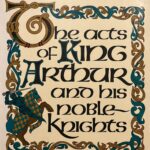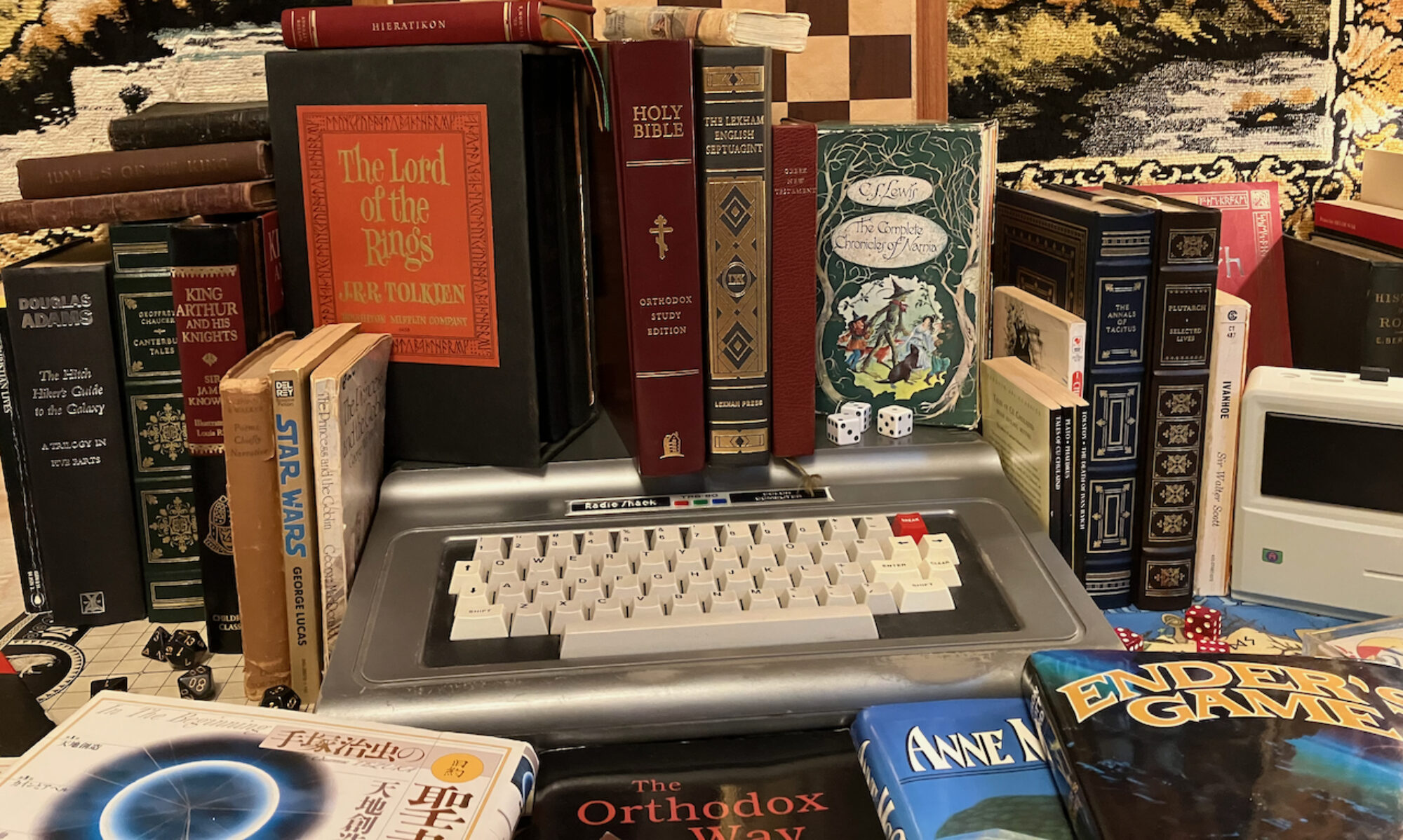
In which I reflect on some of the echoes of Arthurian legend in Lewis and Tolkien, and on some of the influence and significance of the death of Arthur for me
Show Notes:
Tolkien:
- “The Fall of Arthur”
- The Return of the King
- Tolkien states in a letter that he had given Frodo and Bilbo an “Arthurian ending”. “The Elves were summond to return into the West, and such as obeyed dwelt again in Eressëa, the Lonely Island, which was renamed Avallon: for it is hard by Valinor.”
Lewis:
“When the Pevensie children had returned to Narnia last time for their second visit, it was (for the Narnians) as if King Arthur came back to Britain, as some people say he will. And I say the sooner the better.” –C.S. Lewis, The Voyage of the Dawn Treader
“The association of Arthur’s grave with Glasontbury can therefore be described briefly. The earliest written record is found in a work of the Welsh antiquary Giraldus Cambrensis, or Gerald of Wales, written near the end of the twelfth century. After observing that fantastical tales were told of Arthur’s body, as that it had been borne to a region far away by spirits and was not subject to death, he said that ‘in our days’ Arthur’s body had in fact been found, by the monks of the abbey of Glastonbury, buried deep in the ground in a hollowed oak in the graveyard. A leaden cross was fixed to the underside of a stone beneath the coffin, in such a way that an inscription on the cross was conceled. The inscription, which Giraldus himself had seen, declared that buried there was the renowned King Arthur together with Wennevaria in insula Avallonia [in the island Avallonia]. (He records also the curious detail that beside the bones of Arthur (which were of hugest size) and of Guinevere was a perfectly preserved tress of her golden hair, but that when it was touched by one of the monks it fell instantly to dust.) The date of this event is recorded as 1191.
In the same passage Giraldus said that what was now called Glastonia was anciently called Insula Avallonia. This name, he explained, arose because the place was virtually an island, entirely surrounded by marshes, whence it was called Britannice (in the British [i.e., Celtic] language) Inis Avallon, meaning, he said, insula pomifera ‘island of apples’, aval being the British word for ‘apple’, for apple-trees were once abundant there. He adds also that Morganis, who was a noble lady, akin to King Arthur, and ruler of that region, took him after the battle of Kemelen (Camlan) to the island which is now called Glastonia for the healing of his wounds.” –Christopher Tolkien, The Fall of Arthur
“‘Don’t you remember planting the orchard outside the north gate of Cair Paravel? The greatest of all the wood-people, Pomona herself, came to put good spells on it.’ …
‘[But] Cair Paravel wasn’t on an island.’
‘Yes, … but it was a what-do-you-call-it, a peninusla. Jolly nearly an island.
Couldn’t it have been made an island since our time? Somebody has dug a channel.'” –Peter and Edmund in Prince Caspian
Steinbeck:
“The western world and its so called culture have invented very few things,” he wrote in 1953. “But there is one thing that we invented and for which there is no counterpart in the east and that is gallantry. . . . It means that a person, all alone, will take on odds that by their very natures are insurmountable, will attack enemies which are unbeatable. And the crazy thing is that we win often enough to make it a workable thing. And also this same gallantry gives a dignity to the individual that nothing else ever has. . . .”
Influence on Me
Shakespeare, Hamlet:
“Our indiscretion sometimes serves us well, when our deep plots do pall: and that should teach us there’s a divinity that shapes our ends, rough-hew them how we will…
Not a whit, we defy augury: there’s a special providence in the fall of a sparrow. If it be now, ’tis not to come, if it be not to come, it will be now; if it be not now, yet it will come: the readiness is all.” –Act V, Scene II
